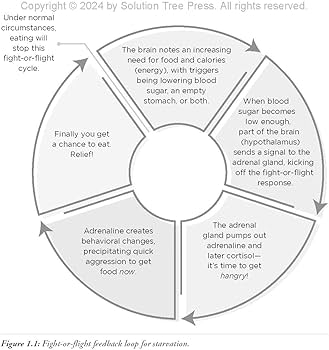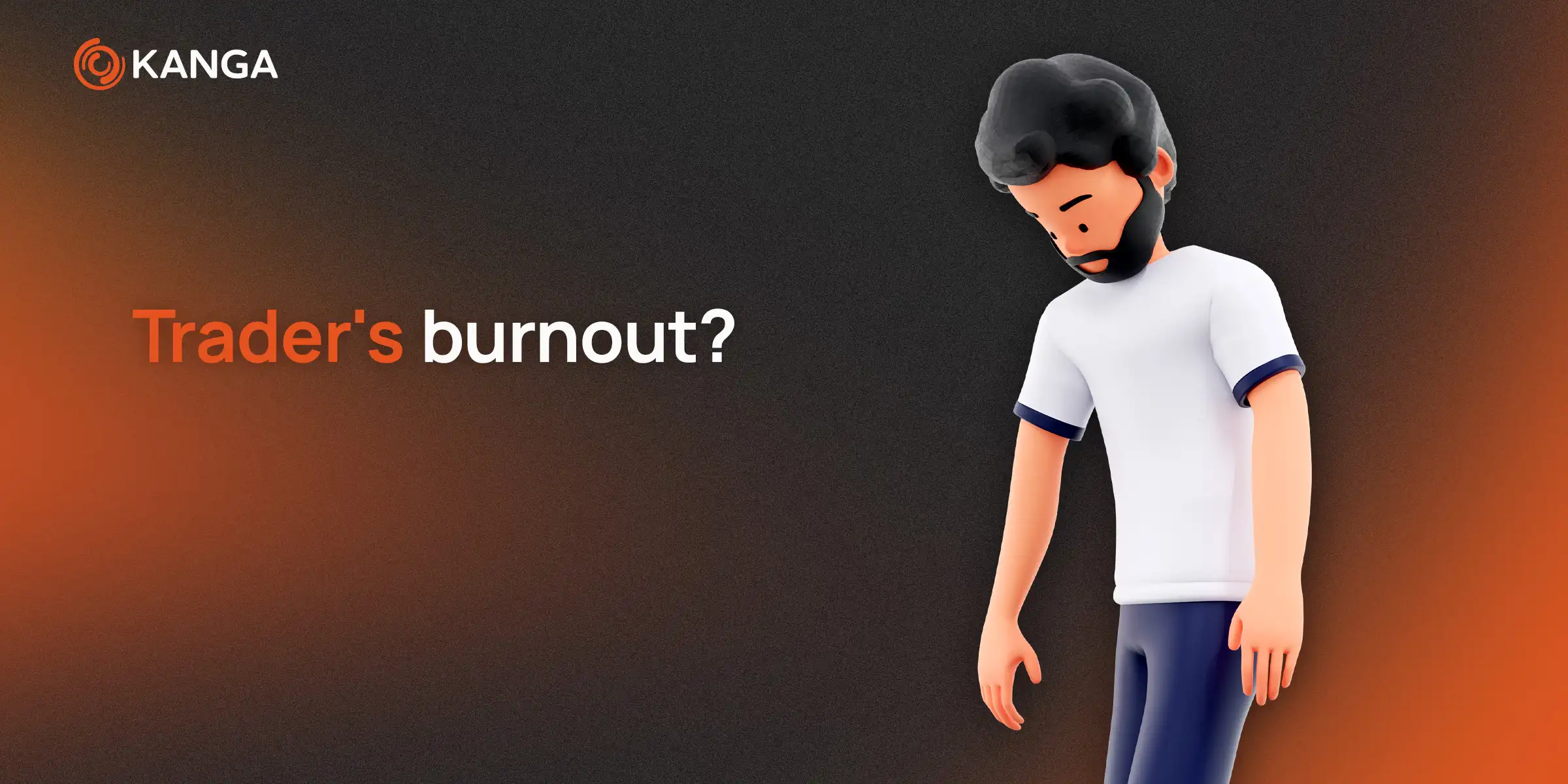Did you know that even the most seasoned traders can feel like they’ve just run a marathon after a long trading session? In the high-stakes world of trading, psychological burnout can sneak up on even the best of us. This article dives deep into the critical signs of trader burnout, including emotional exhaustion, physical symptoms, and loss of motivation. We'll explore how these signs can manifest in decision-making and performance, while also addressing stress's role. Recognizing early indicators and differentiating between normal stress and burnout is vital for long-term success. Finally, we’ll provide strategies from DayTradingBusiness to help traders prevent burnout and maintain their edge in the market.
What are common signs of psychological burnout in traders?
Common signs of psychological burnout in traders include persistent fatigue, loss of motivation, emotional exhaustion, increased irritability, difficulty concentrating, and a sense of detachment from trading activities. They may also experience declining confidence, frequent mistakes, and a feeling of being overwhelmed by market volatility. Some traders lose interest in making decisions or feel hopeless about improving their performance.
How does emotional exhaustion manifest in traders?
Emotional exhaustion in traders shows as persistent fatigue, irritability, and feeling overwhelmed. They may lose motivation, struggle to focus, and make impulsive decisions. Sleep problems and physical symptoms like headaches or tension are common. Traders might withdraw from markets or social interactions, feeling mentally drained and unable to recover energy.
What physical symptoms indicate trader burnout?
Physical symptoms of trader burnout include persistent fatigue, headaches, muscle tension, insomnia, and frequent colds. Traders may also experience stomach issues, rapid heartbeat, or dizziness during stressful trading days. These signs reflect the toll of prolonged mental strain and emotional exhaustion.
How can traders identify loss of motivation?
Traders can spot loss of motivation through decreased enthusiasm for trading, frequent procrastination, and a lack of interest in analyzing markets. They may feel mentally exhausted, avoid making decisions, or experience growing frustration after losses. A loss of confidence and a sense of dread before trading sessions also signal burnout. If trading no longer feels rewarding or they start questioning their skills, it’s a clear sign motivation is waning.
What behavioral changes signal burnout in trading?

Trading burnout shows as constant fatigue, impatience, and loss of focus. Traders may become emotionally detached, overly irritable, or start second-guessing every decision. Increased hesitation or impulsivity, neglecting risk management, and skipping breaks also signal burnout. Sometimes, traders lose passion for markets or feel hopeless about gains, even when opportunities arise. These signs reflect mental exhaustion and decreased resilience in trading.
How does burnout affect a trader’s decision-making?
Burnout clouds a trader’s judgment, leading to impulsive decisions, increased risk-taking, and emotional reactions rather than logic. It causes fatigue and detachment, making traders overlook analysis or ignore signs of market shifts. This mental exhaustion reduces focus, hampers discipline, and heightens the chance of costly mistakes.
What are the emotional warning signs for traders?
Emotional warning signs for traders include feeling overwhelmed, irritability, loss of motivation, anxiety before trades, and persistent self-doubt. They may also experience emotional exhaustion, mood swings, and a sense of detachment from trading activities. These signs indicate psychological burnout and can impair decision-making and focus.
How does burnout impact a trader’s performance?
Burnout causes traders to lose focus, make impulsive decisions, and reduce their risk management. It leads to emotional exhaustion, diminishing their ability to analyze market data clearly. As a result, performance drops, mistakes increase, and profitability suffers. Burnout also saps motivation, making traders less disciplined and more prone to errors.
What role does stress play in trader burnout?
Stress is the main driver of trader burnout; constant pressure and high stakes drain mental energy, leading to exhaustion, emotional numbness, and decreased motivation. It clouds judgment, causes frustration, and makes traders feel overwhelmed, pushing them toward burnout symptoms like irritability, detachment, and reduced performance. Long-term stress without proper coping turns acute fatigue into chronic psychological burnout.
How can traders recognize mental fatigue?
Traders recognize mental fatigue by feeling exhausted even after rest, struggling to focus, making impulsive decisions, losing interest in trading, and experiencing increased stress or anxiety. They may notice slower reaction times, forgetfulness, or a sense of emotional detachment from their trades. If trading decisions become inconsistent or they feel overwhelmed without clear reason, mental fatigue is likely.
What are the signs of burnout related to trading habits?

Signs of psychological burnout in traders include persistent fatigue, loss of motivation, emotional exhaustion, increased mistakes, difficulty focusing, irritability, and feeling overwhelmed. They may also withdraw from trading activities, experience anxiety about trades, or lose confidence in their strategies.
How does prolonged trading affect mental health?
Prolonged trading can lead to psychological burnout by causing constant stress, emotional exhaustion, and decision fatigue. Traders may feel overwhelmed, lose motivation, and experience anxiety or depression. The relentless pressure to perform and the fear of losses drain mental energy, making it harder to stay focused and disciplined. Over time, this can decrease resilience, impair judgment, and increase the risk of emotional breakdowns.
What are early indicators of trader burnout?
Early signs of trader burnout include constant fatigue, loss of motivation, difficulty concentrating, irritability, and emotional exhaustion. Traders may also notice decreased confidence, increased mistakes, and feeling detached from their trading routines. These signs often appear before more severe mental and physical symptoms develop.
How can traders differentiate between normal stress and burnout?
Traders differentiate between normal stress and burnout by observing intensity and duration. Normal stress is temporary, triggered by specific market events, and resolves quickly. Burnout feels persistent, overwhelming, and can cause emotional exhaustion, detachment from trading, and decreased performance. If stress leads to chronic fatigue, loss of motivation, or cynicism about trading, it's burnout. Pay attention to emotional signs like irritability or apathy that stick around despite breaks.
What strategies help prevent burnout in traders?
To prevent burnout in traders, set strict trading limits to avoid overexposure, take regular breaks to reset mentally, and maintain a balanced routine outside trading. Practice mindfulness or meditation to reduce stress, stay disciplined with your trading plan, and seek support when feeling overwhelmed. Prioritize sleep and exercise to boost resilience, and avoid obsessing over every market move to reduce emotional exhaustion.
How does burnout influence a trader’s risk-taking?
Burnout makes traders more likely to take reckless risks or become overly cautious. Fatigue and emotional exhaustion impair judgment, leading to impulsive trades or hesitation. As burnout worsens, traders may ignore risk management, chasing quick gains or avoiding losses altogether. It clouds decision-making, increasing chances of costly mistakes.
What are the long-term effects of trading burnout?
Long-term trading burnout can lead to chronic stress, emotional exhaustion, and decision-making fatigue. It may cause persistent anxiety, loss of confidence, and increased risk of depression. Traders might develop unhealthy coping habits like overtrading or neglecting self-care. Over time, burnout can impair judgment, reduce profitability, and lead to a complete withdrawal from trading.
Conclusion about What Are Signs of Psychological Burnout in Traders?
Recognizing signs of psychological burnout is crucial for traders to maintain optimal performance and decision-making. Common indicators include emotional exhaustion, physical symptoms, and changes in motivation and behavior. Understanding these signs helps traders differentiate between normal stress and burnout, ultimately enabling them to implement effective strategies for prevention. By prioritizing mental health, traders can safeguard their performance and longevity in the market. For more insights and support on managing trader burnout, consider exploring the resources available at DayTradingBusiness.